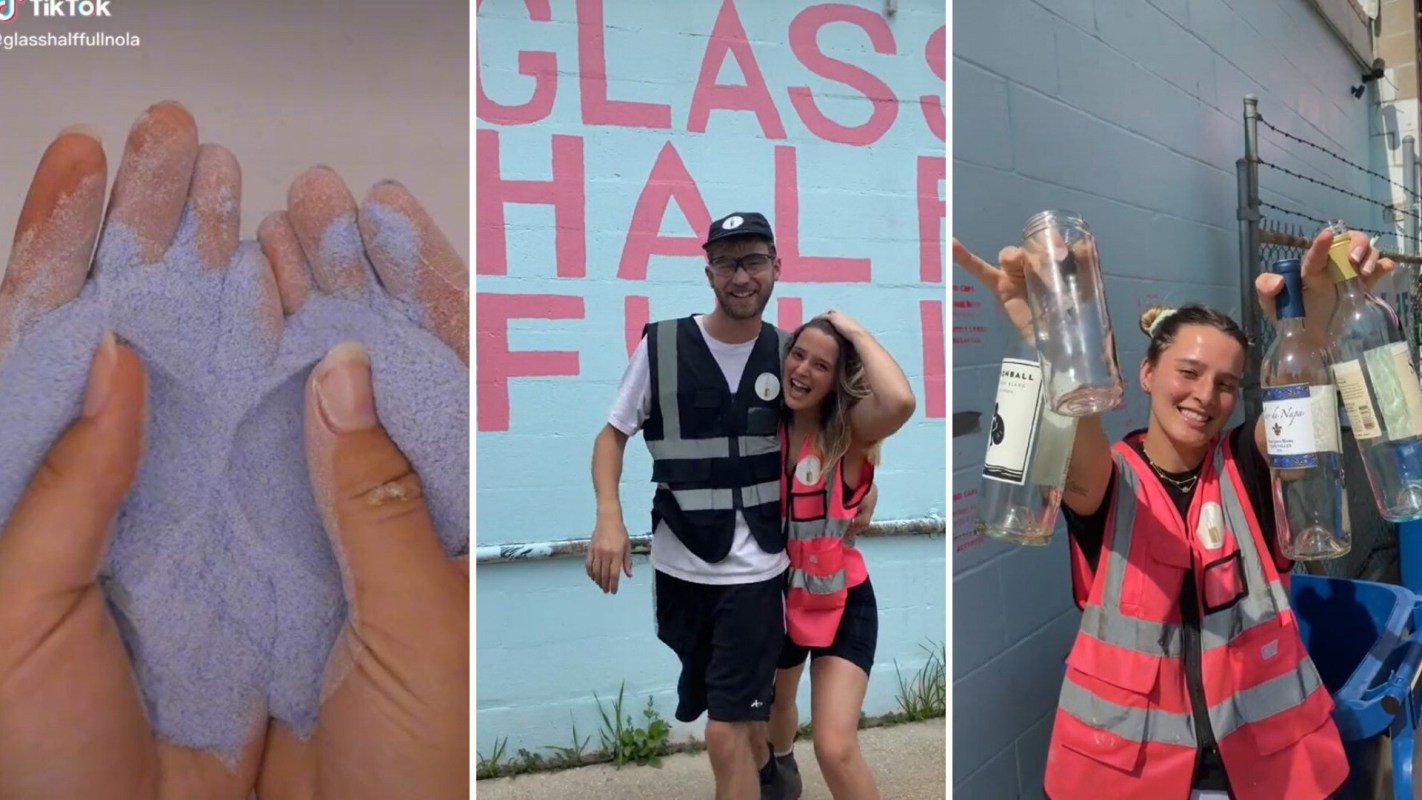A group of creative young people at the nonprofit Glass Half Full is giving glass waste a new purpose through a grassroots recycling program. It has the potential to help the Louisiana coastline and solve a worldwide sand problem.
It started after Tulane seniors Franziska Trautmann and Max Steitz polished off a bottle of wine in the spring of 2020. Knowing it would likely end up in a dump, they considered a different future for the glass.
The glass smashing started in a backyard when the pair began collecting glass from some of their friends and hand-crushing it for reuse. News spread, and the project gained steam.
"From there, it was history — we are now backed by a growing team of staff, volunteers, and community members who pitch in daily to divert tens of thousands of pounds of glass from NOLA's landfills every single week," they write on their website.
"We can turn wine into a resource for our state," Trautmann says in a TikTok video about the project.
@glasshalffullnola Our project was recently funded by the National Science Foundajrin Convergence Accelerator program!!! #glassrecycling #coastalrestoration ♬ Music for the Wii - Ishike
They are turning discarded glass into flooring, sandbags for flood protection, and sand to restore the coastline, among other uses.
The nonprofit is operating in a 40,000-square-foot facility that has recycled more than 3 million pounds of glass as of February 2023. Shoring up the coastline and providing flood protection is crucial for a region that experiences severe weather on a regular basis.
"Louisiana is one of the most susceptible to climate change," Steitz told NBC.
Glass waste is saved from landfills through a recycling collection and pickup system, and then the process includes pulverization and sorting various sizes of sand to be used for sustainable purposes ranging "from flooring and new glass products to disaster relief sandbags for mitigating flood damage."
One surprising use is turning the glass into sand to counter coastal erosion. Glass Half Full says that "sand is a crucial tool for rebuilding the barrier islands and sandbars that protect our coast from tropical storms and hurricanes."
"Louisiana has lost a quarter of its wetlands since the 1930s as a result of flood control structures designed to protect communities and businesses from flooding," the nonprofit said.
CNBC reported a sand stat that might surprise most people: sand is scarce.
Up to 50 billion tons of sand is used worldwide in construction and other means to support humanity each year, the report said.
Glass Half Full is working with Tulane scientists to test how the recycled glass sand is interacting with the local ecosystem on the microbial level to ensure the work is having a maximum, positive impact.
The nonprofit says there's an economic benefit, as well, and it can also help to make overall recycling efforts more effective by reducing the amount of glass that gets thrown in with other recyclable materials. Americans produce about 300 million tons of trash per year.
Join our free newsletter for cool news and actionable info that makes it easy to help yourself while helping the planet.









